The Problem of Student Indiscipline:
The problem of growing indiscipline among students has been taxing the best brain of our national leaders and educationists. Indiscipline among students not only is harmful but also reveals a serious disorder in the educational system. Lack of discipline among students leads to the neglect of studies on their part. It makes them interested in wild sports and pleasure, in destruction and ruin.
The effects of the student’s unrest on democracy are far-reaching. Law and order position grows weak. The youth is the cream of the nation and the flower of our country. The students of today are the citizens of tomorrow. On them depend our safety and prosperity. They have to shoulder the heavy responsibility of reconstructing our backward country. By their contribution in fields of arts, literature and science they have to secure for us an honoured place amongst the nations of the world. They have to safeguard our democratic institutions and not destroy them. Again, it is they who have to eradicate (banish) such evils as provincialism and regionalism, group rivalry and corruption, dowry system etc. In order to achieve all this, they shall have to follow the path of discipline. “The country needs”, said Sardar Patel, “trained and disciplined youth and not a rabble (disorderly crowd) or irresponsible hotheads”.
The various factors which are responsible for growing indiscipline among students are as follows. First, teachers have lost their due leadership among students. They do not command today half as much respect and affection as they did in the past. Secondly, the number of students has become very large. The existing institutions cannot accommodate all of them. Thirdly, there are powerful political bodies outside the educational institutions which exercise the most powerful influence over students. Consequently, the hold of teachers on students is gone. Fourthly, growing unemployment among the educated youth of the country has also made students feel restless, frustrated (disappointed) and cynical. They think that in spite of their best degrees, their future is not bright. Fifthly, student unrest is regarded as a symptom of the general social unrest in the country as also in the world. The United Nations has made a detailed study of youth problems throughout the world and has come to the conclusion that the anti-social behaviour of the students is the result of their demand to take an active part in national affairs. Sixthly, the University Unions have grown strong. They want to participate in framing academic policies and in the management of educational institutions. Most educationists are prepared to meet their demands in the hope that they would behave more responsibly. If their demand is not conceded, they are out to disrupt the University life, go on strikes, gherao the Vice-chancellor or professors, set the property on fire and do all acts of goondaism. Lastly, there are various other causes of student unrest in the country such as the language controversy, the police and student conflict or the police excesses within the premises of an institution, expulsion or detention of students, the demand for the postponement or cancellation of examination, the right to copy in the examination hall, difficulties in obtaining admissions, especially to science and medical courses etc.
Now how to remove indiscipline among the students? Discipline means order and regularity. It means each and every student must do his duty at a proper time and in a proper manner. Students must be taught from the very beginning how to behave in a disciplined way.
Again, it is the duty of the governments and society to see that students do not suffer from economic distress. The number of pupils has increased rapidly, but many of them are drawn from the social strata which cannot provide them with their minimum needs. They live in private, cheap lodgings and naturally grow bitter and resentful.
The growing indiscipline among students can thus be removed by raising the status of teachers and by improving the social and economic conditions of students. We should also try to develop their good moral character. Discipline is a matter of habit but all habits rest on character.
A teacher is the centre of all educational systems. He should develop a spirit of love and dedication towards his institution. He should also inculcate among his students a sense of social responsibility. Our student community is quite sensible and patriotic. With proper and sympathetic handling it can be made to behave responsibly. The government should see that political parties do not exploit the difficulties or sentiments of students. Overcrowding in an educational institution should be avoided by providing more schools and colleges. Parent-teacher and student associations should be formed to develop closer contact among them. All these measures, it is hoped will go a long way in eliminating the chances of unrest among students.
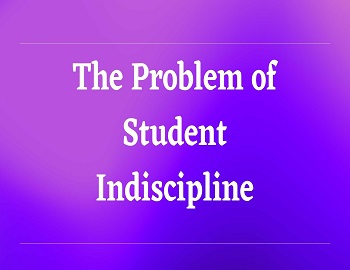

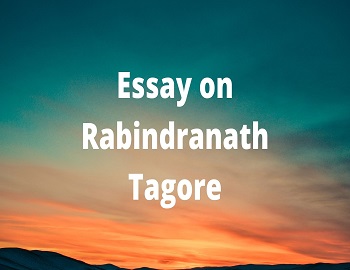
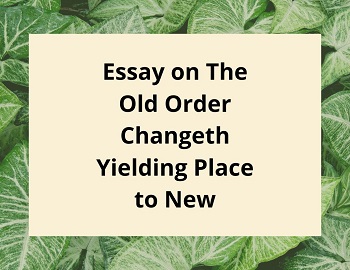
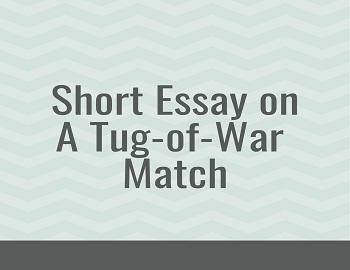

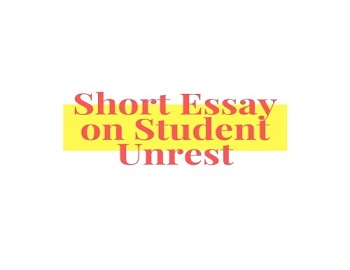


Comments (No)